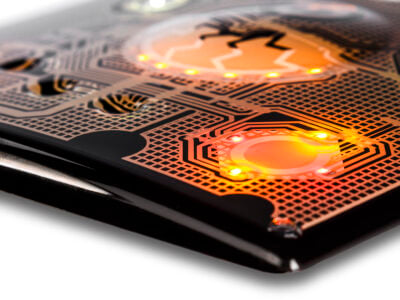
The Space Centre at EPFL in Switzerland has launched an international Space Sustainability Rating to encourage system designers to design and implement sustainable and responsible space missions.
With the uncontrolled falling to earth of a Chinese launcher earlier this week, the issue of space debris and sustainable system design is key.
The launch of the James Webb Space Telescope (JWST) was moved from the 23rd to the 25th of December due to a risk of collision with a piece of space debris, according to the European Space Agency (ESA) launcher directorate.
- Work starts on satellite to clear space debris
- Machine learning to remove space debris
- Ruag teams for debris removal spacecraft
Currently, there are over one million objects larger than 1 cm orbiting the Earth says the eSpace centre at Ecole polytechnique fédérale de Lausanne (EPFL), with more than 60,000 satellites are planned to be launched in the next decade with low earth orbit constellations from Starlink, Amazon’s Project Kuiper and Eutelsat’s OneWeb.
The Space Sustainability Rating (SSR) was developed over the last six years by a consortium including ESA, the Massachusetts Institute of Technology (MIT), BryceTech, and the University of Texas at Austin and is hosted at EPFL’s eSpace. It has been beta tested by a number of operators, including SpaceX, Planet, the EPFL Spacecraft Team, OneWeb, Axelspace, and Airbus to ensure the tool’s accuracy and practical use.
The SSR rates missions relying on modules to evaluate their level of potential harmful physical interference, their collision avoidance process, how they share data, how their design will allow observers to track objects, the compliance with international standards, and their willingness and ability to receive external services.
Participating space operators in the SSR are given a bronze, silver, gold, or platinum rating depending on the outcomes of a comprehensive assessment process based on six modules. A second score is calculated that allows operators to earn additional credits for going over and above the baseline rating.
“Today there is no shared definition of what sustainable behaviour in space means globally, and quantifying, assessing, and verifying international guidelines for space sustainability remains challenging,” said Minoo Rathnasabapathy, Research Engineer, Space Enabled Research Group at MIT and SSR ambassador. “The SSR helps bridge this gap by offering an original and hands-on framework for space operators to evaluate the sustainability level of their missions.”
By engaging with the SSR, satellite and spacecraft manufacturers can obtain transparent and data-based assessments of the level of sustainability of space missions, providing a clear picture of where their missions and operations stand in terms of sustainability, identify areas where improvements can be made, and publicly share the rating’s outcomes.
“Innovative, collaborative, and practical solutions will be critical to the safety of current and future space missions and infrastructure we depend on,” said Florian Micco, Project Manager for the Space Sustainability Rating. “The SSR aims to serve as an impactful incentive to guide space actors’ efforts in improving their overall sustainability. eSpace’s expertise and network will help to grow the SSR and leverage best practices for more sustainable, responsible, and safer behaviours in space.”
Along with the rating itself, the SSR also provides a detailed report about steps operators could take to raise their ratings, such as changes to their spacecraft design or further information that they could share.
Stellar and Nihon University in Japan, who will head the development of a regional-hub for the SSR in Japan and the Asia-Pacific region, joined as founding members in the first quarter of 2022. And in the weeks ahead of the launch, ALTER group, EnduroSat, Privateer, the Secure World Foundation and Slingshot Aerospace joined as members as well, and are providing the SSR with important expertise to enhance the rating system and ensure its relevance and accuracy.
“Fast growth in the space sector is only possible if done sustainably,” says Raycho Raychev, the Founder and CEO of EnduroSat. “That’s why we are proud to join this unique international effort to advance sustainability in orbit.”
Related space articles
- UK satellite terminal maker re-brands as all.space
- $200m for space tech development
- Ruag teams for AI in space
Other articles on eeNews Europe
- Gartner slashes 2022 semiconductor market forecast, sees 2023 fall
- Superconducting cable project aims to boost urban electricity grid
- Open source chip programme expands to 90nm FDSOI
- Boost for UK medical drone distribution network
 If you enjoyed this article, you will like the following ones: don't miss them by subscribing to :
eeNews on Google News
If you enjoyed this article, you will like the following ones: don't miss them by subscribing to :
eeNews on Google News



